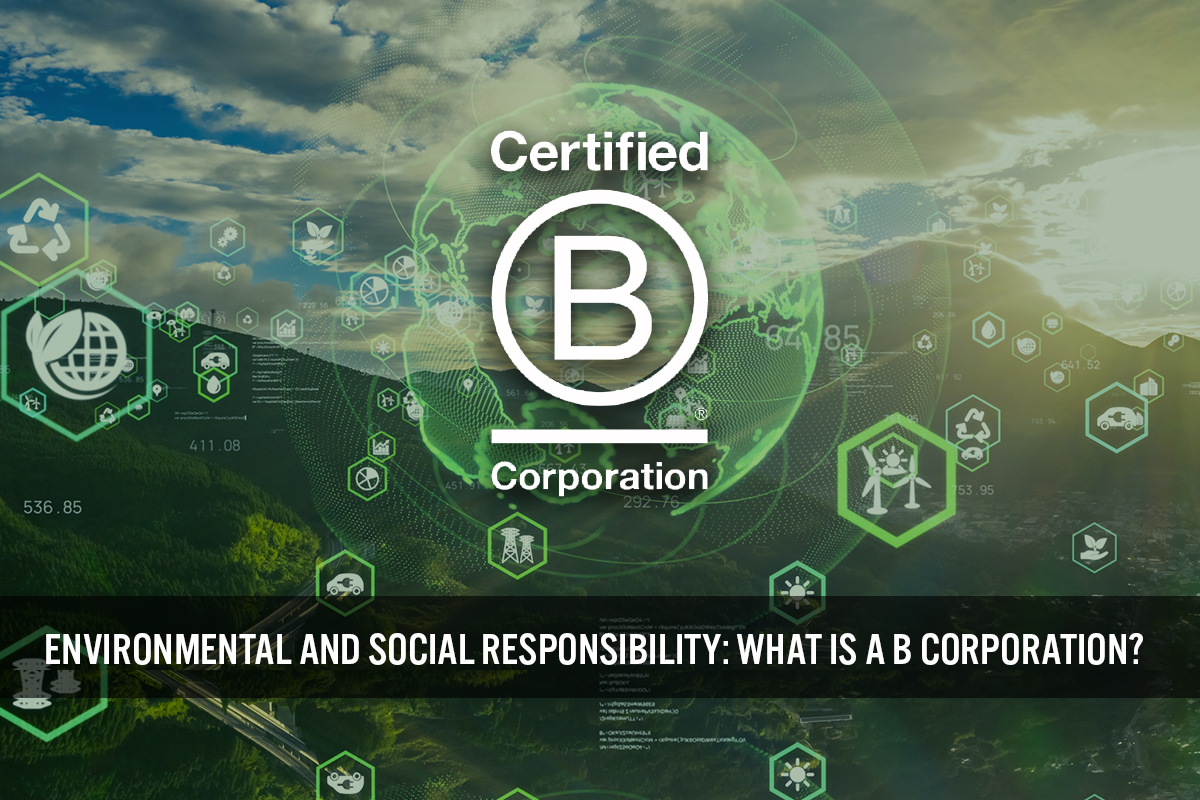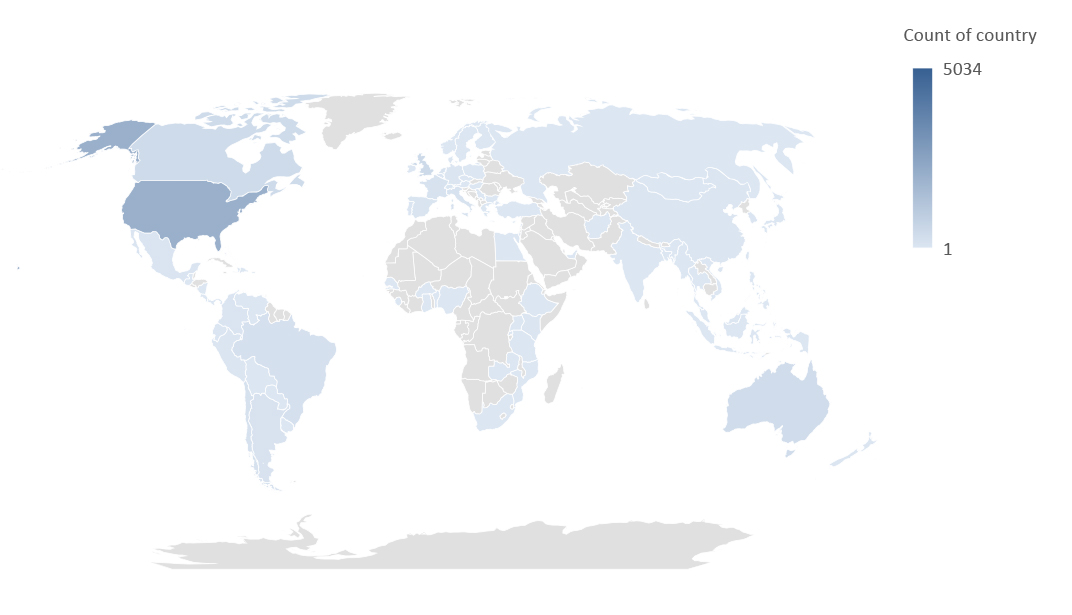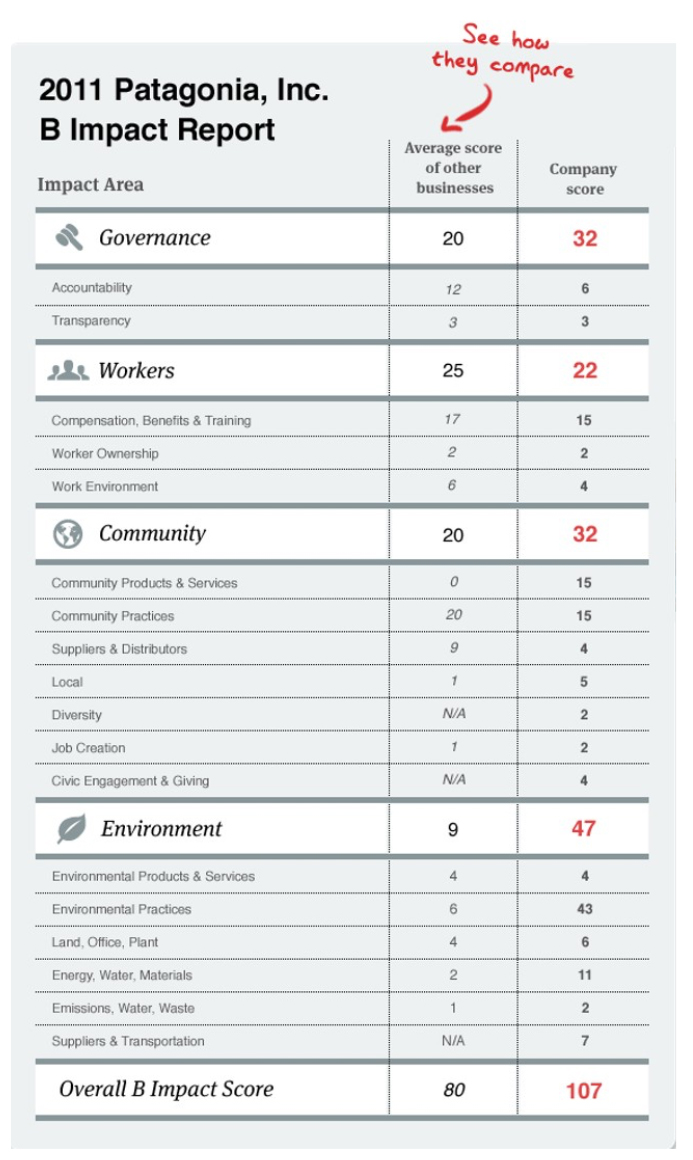
DIpil Das
What’s the Story?
Growing demand among consumers, employees and other stakeholders for environmental and social responsibility by organizations globally is fundamentally changing the face of businesses, including in retail. Nonprofit organization B Lab helped create the B Corporation certification system, which put in place standards, policies and tools that measure a company’s entire social and environmental performance. In this report, we discuss the emergence of B Corporations and the certification process. We also recognize purpose-driven companies globally as they actively work toward becoming more socially and environmentally responsible.Why It Matters
Addressing the world’s most challenging problems—such as food security, global environmental issues, sustainable cities and communities, clean water and sanitation—requires all three sectors (public, private and nonprofit) to work together to create lasting solutions that serve society. The B Corporation standard helps businesses balance both profit and purpose and serves as a third-party validation to the environmental and social efforts of these businesses. Ultimately, the B Corporation certificate serves as medium for organizations to build trust and credibility among stakeholders.Environmental and Social Responsibility: B Corporations in Detail
What Is a B Corporation? As defined by B Lab, B Corporations (or “B Corps”) voluntarily meet the highest standards of verified social and environmental performance, public transparency and legal accountability to balance profit and purpose. This new type of organization works toward maximizing its positive impact on workers, the community, consumers and the environment. B Corps vary in size and include large or well-known brands such as Ben & Jerry’s, Etsy, Patagonia and Rubicon, publicly traded companies such as Natura & Co. and companies such as Laureate and Silver Chef that have gone on to become publicly traded. After launching the certification system in 2006, B Lab certified the first 82 B Corps in 2007. As of July 2021, over 5,000 companies across 84 countries globally have been certified as B Corporations. Figure 1 shows the global distribution of certified companies. The largest concentration of B Corps is in the US, in which over 40% (2,019) of total certified B Corporations are based. The UK comprises 9.2% (463) of all certified companies, while Canada accounts for 8.4% (424). Africa, the Middle East and South Asia are regions that have sparsely achieved the B Corp certification.Figure 1. Global Concentration of Certified B Corporations, as of July 2021 [caption id="attachment_132070" align="aligncenter" width="725"]
 Source: B Lab [/caption]
How Does the Certification Process Work?
The necessary process a company must undertake to become a B Corp depends on its size and structure. For this report, we look at the general process to becoming a B Corp as specified by B Lab, which comprises a self-assessment questionnaire and a verification process. According to B Lab, only around one in three companies who submit to become a B Corp achieve certification.
Step 1: B Impact Assessment
The B Corp certification process starts with a free online self-assessment tool known as the “B Impact Assessment” (BIA), which evaluates companies across five core areas: governance, workers, customers, community and the environment. Only companies with at least one year of operations are eligible for the B Corp certification as the BIA measures company performance over the past 12 months.
Companies are expected to answer 200 questions on average, and the time taken to do this varies depending on the size, age and operating locations of each company; B Lab’s guideline is between one and three hours for most small businesses. Based on its answers, the organization receives a score out of 200, with the minimum benchmark to certify as a B Corp set at 80.
Below, we provide example assessment questions.
Source: B Lab [/caption]
How Does the Certification Process Work?
The necessary process a company must undertake to become a B Corp depends on its size and structure. For this report, we look at the general process to becoming a B Corp as specified by B Lab, which comprises a self-assessment questionnaire and a verification process. According to B Lab, only around one in three companies who submit to become a B Corp achieve certification.
Step 1: B Impact Assessment
The B Corp certification process starts with a free online self-assessment tool known as the “B Impact Assessment” (BIA), which evaluates companies across five core areas: governance, workers, customers, community and the environment. Only companies with at least one year of operations are eligible for the B Corp certification as the BIA measures company performance over the past 12 months.
Companies are expected to answer 200 questions on average, and the time taken to do this varies depending on the size, age and operating locations of each company; B Lab’s guideline is between one and three hours for most small businesses. Based on its answers, the organization receives a score out of 200, with the minimum benchmark to certify as a B Corp set at 80.
Below, we provide example assessment questions.
- On governance: “Has the company worked within its industry to develop social and environmental standards for your industry?”
- On workers: “Based on referenced compensation studies, how does your company’s compensation structure (excluding executive management) compare with the market?”
- On the community: “What percentage of management is from underrepresented populations? (This includes women, minority/previously excluded populations, people with disabilities and/or individuals living in low-income communities.)”
- On the environment: “What percentage of energy (relative to company revenues) was saved last year for your corporate facilities?”
 Example B Impact Report
Example B Impact Report Source: B Lab [/caption] About B Lab Nonprofit organization B Lab was founded in 2006 in Pennsylvania, US. It provides standards, benchmarks and tools to measure a company’s overall environmental and social contribution and awards the B Corporation certificate to for-profit companies who exceed the minimum standard set out. The certification standards and its performance are governed by the Standards Advisory Council, an independent multi-stakeholder council comprising global experts on sustainable businesses. On an annual basis, B Lab’s “Best for the World” awards recognize the top-performing B Corps—those that have earned a score in the top 10% on the BIA across the four impact areas of governance, workers, community and environment, as well as overall. B Lab has also established a partnership with the United Nations to help the private sector translate the Sustainable Development Goals (SDGs) into practical business processes. Its impact management solution, SDG Action Manager, enables businesses to set goals and track their progress to achieving the SDGs. According to B Lab, more than 100,000 companies manage their impact with the BIA and the SDG Action Manager. Commitment to Environmental Responsibility: Case Studies The B Corporation status and certification process leads companies to identify environmental and social areas in which they are doing well and areas in which they can improve—meaning that they can make continual efforts to better impact society and the environment. Below, we look at two purpose-driven companies that have made improvements in their commitment to the environment. W.S. Badger Co, Inc. W.S. Badger Co, Inc. (“Badger”) is a family-owned business that produces organic and natural skincare products in the US. Badger began the process of becoming a certified B Corporation in 2011 and recorded an initial B Impact score of 98. The company has since implemented several improvements including increasing its renewable energy usage from 0% to 25%–50%, establishing a whistleblowing policy and producing an annual report that highlights its mission-related performance. Through these initiatives, Badger has continued to improve its score, with bcorporation.net recording a current score of 147.4 for the company (as of August 2021). Badger has been an honoree in B Labs’ Best for Overall award six times—most recently in 2019—and in the Best for Environment award seven times, including in 2021. Mr. Green Africa Based in Nairobi, Mr. Green Africa (“MGA”) was the first waste management company in Africa to be certified as a B Corporation in March 2021, with a B Impact score of 80.9. MGA’s strong emphasis on environmental and social impact has seen it develop a draft internal “SoCular” (social and circular) impact framework. The framework is based around three pillars:
- The fair treatment of waste workers. Are MGA workers paid a fair price? Are workers treated fairly and are they engaged in a safe and healthy environment? Do workers have the ability to move up the recycling value chain?
- Environmental impact. This assesses MGA’s environmental footprint by developing indicators which measure the company’s water efficiency, energy efficiency and determine how much waste is created through MGA’s production and supply chain.
- MGA’s contribution to the circular economy. How much plastic waste does MGA take out of the environment? How much of that is put into post-consumer recycled plastics—or becomes a new product? How much imported virgin plastic is offset by MGA’s recycling process?
What We Think
A younger generation of consumers, employees and investors expect greater transparency and stricter ethical business codes from the brands they buy, the companies they work for and the firms they invest in. One of the many silver linings of the Covid-19 pandemic is that quarantined consumers had the chance to examine their values and the values of the businesses they interact with. A Coresight Research survey of US consumers conducted on July 26, 2021, found that the Covid-19 crisis has made environmental sustainability more of a factor when shopping for around three in 10 respondents—more than double the proportion of respondents that said sustainability is now less of a factor for them. Consumers highlight sustainability in packaging and reducing the use of plastics as among the most important types of sustainability for retailers. Furthermore, with less than a decade to achieve the 2030 SDGs of the United Nations, action against climate change is taking center stage among governments and corporations globally. Investors are also demanding that retailers address environmental, social and governance (ESG) considerations and are transparent with their ESG goals and progress. Coresight Research is working to reassess the sustainability landscape as retailers look for opportunities to optimize operations and reduce costs through eco-friendly initiatives. We developed the EnCORE framework to help retailers and brands frame their approach to sustainability. The framework comprises five components, providing a model through which retailers can begin to internalize a sustainability strategy, boost profits and drive growth while realizing environmental benefits.- For a detailed discussion around the development of sustainability in retail and the five components of our EnCORE framework, read our free report: “The Time for Sustainability in Retail Is Now.”
- Read our Playbook on inclusivity in retail, which presents five strategies for brands and retailers to align inclusivity goals across their products and operations.
- Retail supply chain companies, regardless of their size or industry, are exposed to a variety of environmental and social risks that require the adoption of responsible business practices throughout the lifecycles of goods and services. Retailers will be required to understand both the internal and external processes of their operations and proactively identify supply chain risks—such as environmental pollution, use of hazardous chemicals and improper waste disposal. Transparency along the retail supply chain from sourcing to manufacturing and distribution is critical to achieving this.
- From a social standpoint, ethical labor practices—including the provision of fair compensation and benefits, a safe working environment, and training programs for employees—will need to be addressed by retailers to achieve B Corporation status, which benefits society as a whole.
- For retailers that already conduct business in a sustainable manner, disclosing metrics both internally and externally will help build trust and credibility amongst all stakeholders, including consumers.